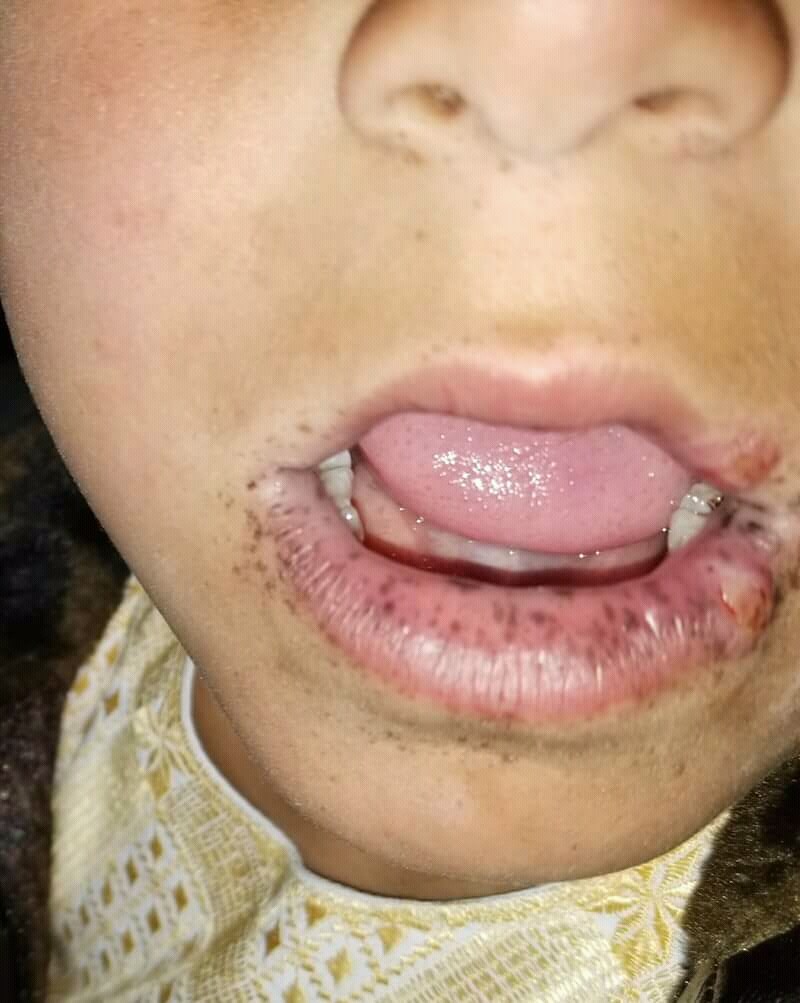Subscribe to our email newsletter
Be kept in the loop about our latest news on pancreatic cancer, the charity and our supporters.
Peutz-Jeghers Syndrome (PJS) is a genetic disease and is therefore considered a non-modifiable risk factor. You cannot change the genes you inherit. However, you can manage your risk once you are aware of it.
PJS can increase your chance of getting pancreatic cancer. Monitoring for pancreatic cancer should also be included in the regular screening and monitoring that Peutz-Jeghers Syndrome patients receive. It is also a risk for other cancer types, so it is important that it is monitored.
This is a very rare inherited syndrome that generally presents itself in childhood. It often causes fleshy non-cancerous growths called ‘hamartomatous polyps’, which develop on the surface of the digestive tract, most commonly in the small intestine, but can also incur in the large intestine and the stomach.
Polyps often present themselves in adolescents. Although the polyps are usually non-cancerous, they can cause health problems such as:
The physical traits also include areas of pigmentation on the body, which appear as black or blue dots. Most commonly, they appear around the mouth, lips and on the inside of the cheeks. However, these spots can also occur on the nose, fingers, palms, toes, soles of the feet, eyes and anus.

Peutz-Jeghers Syndrome is an inherited genetic condition and therefore cannot be caught or caused by lifestyle factors. The condition is caused by a malfunctioning gene. PJS has an autosomal dominant inheritance. This means that you only need one faulty copy of the gene from your mother or father to develop the condition. If either of your parents has Peutz-Jeghers Syndrome, you have a 50% chance of inheriting the mutated STK11 gene from your parents.
Some people do not have the STK11 gene mutation but still have Peutz-Jeghers Syndrome. The cause of this is unknown but it is probably the result of a gene mutation during the development of the embryo (early developmental stage of an unborn child). These individuals can still pass the mutation to their children.
Peutz-Jeghers Syndrome is extremely rare, which means that more research on how often it occurs is needed. It is estimated to affect between one in 50,000. As of January 2021, it is said to cause between 11-55% of pancreatic cancer cases in Europe (Wagner et al., 2021).
Treatments are dependent on the symptoms that present. Regular screening aims to help the early removal of polyps to prevent the development of more severe problems. This is usually done through an endoscopy/colonoscopy/gastroscopy (these are all methods of passing a camera through the body) in order to inspect the polyps. Often surgery is needed in the stomach at some point during the lifetime. This is either a laparotomy or laparoscopy (both are forms of keyhole surgery, just slightly different methods). The use of a camera and surgical methods together can diagnose and remove polyp formation at the same time. Surgery is often also needed to treat intussusception (a serious condition in which part of the intestine slides into an adjacent part of the intestine).
For other symptoms, such as diarrhoea and constipation, medication can be given to help relieve symptoms. Discuss treatment options with your doctor or medical professional.
If you do have this syndrome, regular cancer surveillance is highly recommended. If you have or think you may have Peutz-Jeghers, it is especially important to discuss this with your doctor.
 The information provided in this site, or through links to other websites, is not a substitute for medical or professional care and should not be relied upon as such. Read our disclaimer.
The information provided in this site, or through links to other websites, is not a substitute for medical or professional care and should not be relied upon as such. Read our disclaimer.
Sources and references for this information product will be supplied on request. Please contact us quoting the Information Product number below:
| Information Product № | Published | 15/10/2019 | |
|---|---|---|---|
| Last Updated | 07/09/2022 | Next Review Due | 02/02/2024 |